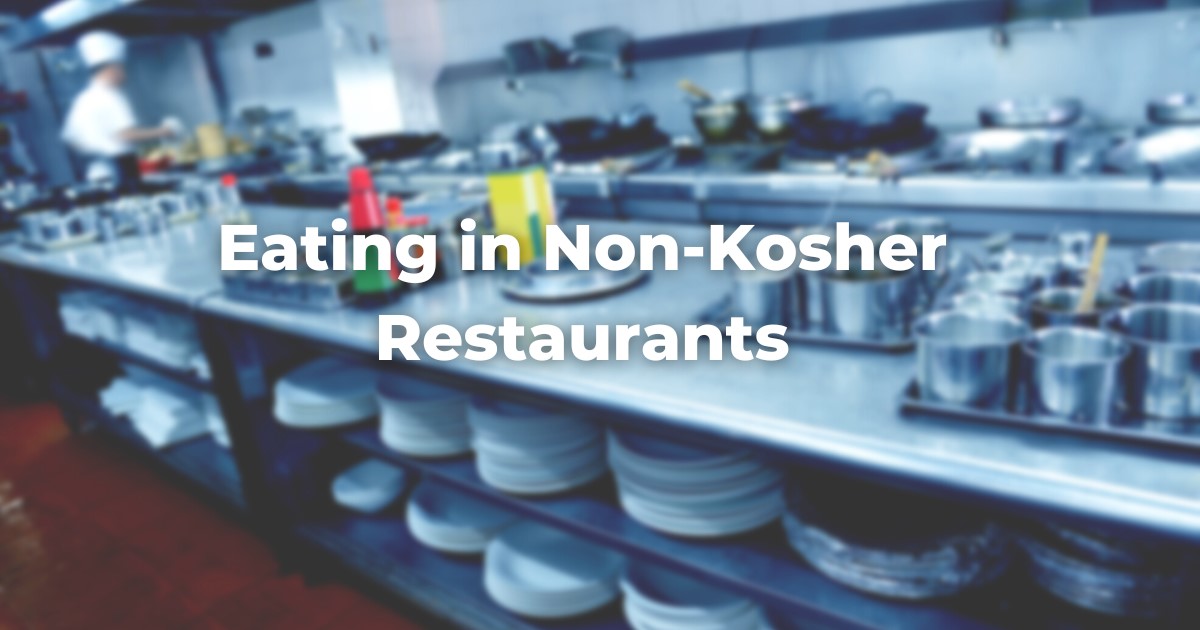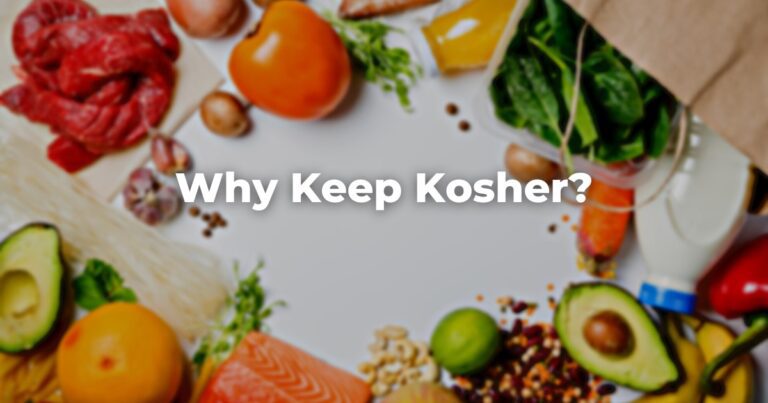The question of eating in non-kosher restaurants is very complex and was first addressed directly in a Committee on Jewish Law and Standards (CJLS) responsum that dates back to the 1950s.
Since that time, one of the hallmarks of Conservative Jewish practice has been the basic understanding that it is possible to eat in unsupervised restaurants responsibly.
There are, however, a number of issues related only tangentially to the question of the actual ingredients but that can nonetheless impact the kashrut of foods in a non-supervised restaurant.
Plates and flatware, cooking utensils, and grills and griddles used for food preparation must be considered in terms of their putative effect on the kashrut of the food served. Is washing dishes in commercial machines considered the same as kashering? What about utensils, knives, and cutting surfaces?
These are thorny, vexing questions even for experts to ponder, let alone for newcomers to kashrut observance.
To be completely compliant with the system of kashrut, the only way to be certain that one will never inadvertently eat non-kosher food when dining out is not to eat in non-kosher restaurants at all.
However, this option will not always appeal to people or be possible due to life circumstances.
Unforeseen incidents may also arise. What about traveling? What of long business meetings that include some food service? Is there an alternative between certified kosher food and no food at all?
A number of accommodations have been developed over the years.
None is perfect, but all are acceptable approaches for people who are trying to incorporate the principles of kashrut into their lives, but are not quite ready simply to abandon all food in all unsupervised venues.
A first choice can be to search out vegan or vegetarian restaurants. In these establishments, many of the problematic issues are solved almost ipso facto.
When there are no meat products or meat by-products of any kind in the restaurant, one can feel relatively confident that the food is acceptable, even if the establishment is not kosher-certified or supervised.
The next best choice would be to eat only minimally processed foods when eating in unsupervised establishments.
Breakfast, for instance, can be relatively simple. Many outlets serve some foods prepared under certification, such as pastry, bagels, cold cereal, and yogurts. These foods can be consumed with confidence, as can coffee, tea, juices, and other beverages.
For other meals, the choices become a bit more limited, but eating only minimally processed cold foods is always a reasonable option.
Salad bars can provide many possibilities, although it is always best to ask what ingredients pre-prepared salads (and salad dressings) actually contain, and also to pay special attention to mysterious items one cannot identify easily.
One should always assume that ersatz meat products like bacon bits are at least partially made from meat products.
Less preferable than cold food is strictly vegetarian hot food.
Many restaurants expect some clients to be vegans or vegetarians, and are eager to accommodate them and to make them feel welcome.
An excellent source of information on which restaurant chains offer vegetarian food options is the Vegetarian Resource Group (located on-line at www.vrg.org), which seeks out vegetarian restaurants and vegetarian options in chain restaurants.
This organization also helps make vegetarian customers aware of hidden areas of concern in restaurant food, and that information can be valuable to the kosher diner in a non-kosher restaurant.
Eating hot and cooked foods in restaurants is a complex decision for the kosher consumer.
Grilled and fried foods, for example, are usually made with utensils and on cooking surfaces that are rarely fully cleaned before cooking. And although waffle irons are rarely used for anything but waffles, pancakes are more than likely made on the same griddles as various meat products.
Similarly, boiled eggs present fewer issues to resolve than fried or scrambled eggs. Cooked foods must be truly vegetarian if even a minimal standard of kashrut is being maintained.
Most restaurants are happy to accommodate patrons who make special requests.
Potatoes or fish can sometimes be baked wrapped in foil. Pasta can be served sprinkled with only olive oil and spices, thereby affording the kosher diner the opportunity to avoid sauces made with unknown ingredients.
With advance notice, most event caterers can and will provide vegetarian or vegan meals for meetings without much difficulty.
When asking about the foods in a restaurant, it is important to know what questions need to be answered.
It is, for example, essential to inquire what type of shortening was used for baking and treating pans. And the kosher diner will also have to establish clearly whether beef or chicken broth or stock has been added to soups or sauces, or whether such products were used as flavorings in foods such as pilafs or mashed potatoes.
It is also commonplace for beef or chicken stock or fat to be added to cream soups, cheese soups, or tomato sauce.
Other questions are more basic.
Are separate pans used for different foods? Are products cooked together on the grill? Is a separate grill used for cooking fish, or is fish prepared on the same grill as meat? Are fish, chicken, and potatoes fried in separate fryers?
If a server cannot answer these questions clearly or find out the answers in the kitchen, then the responsible kosher consumer has to assume that the foods in question are likely problematic from the perspective of kashrut.
Editors note: If you are interested in a deeper dive on this topic I recommend reading the CJLS responsa about eating pizza from a non-kosher establishment.
Adapted with permission from The Observant Life.
.
Authors
-

Rabbi Paul S. Drazen (1951-2018) spent two-thirds of his rabbinic career serving individual congregations and one-third on the staff of USCJ, all the while creating programs and educational opportunities to make Jewish observance and practice clear, accessible, and attainable for everyone.
View all posts -



The Observant Life: The Wisdom of Conservative Judaism for Contemporary Jews distills a century of thoughtful inquiry into the most profound of all Jewish questions: how to suffuse life with timeless values, how to remain loyal to the covenant that binds the Jewish people and the God of Israel, and how to embrace the law while retaining an abiding sense of fidelity to one’s own moral path in life. Written in a multiplicity of voices inspired by a common vision, the authors of The Observant Life explain what it means in the ultimate sense to live a Jewish life, and to live it honestly, morally, and purposefully. The work is a comprehensive guide to life in the 21st Century. Chapters on Jewish rituals including prayer, holiday, life cycle events and Jewish ethics such as citizenship, slander, taxes, wills, the courts, the work place and so much more.
View all posts






